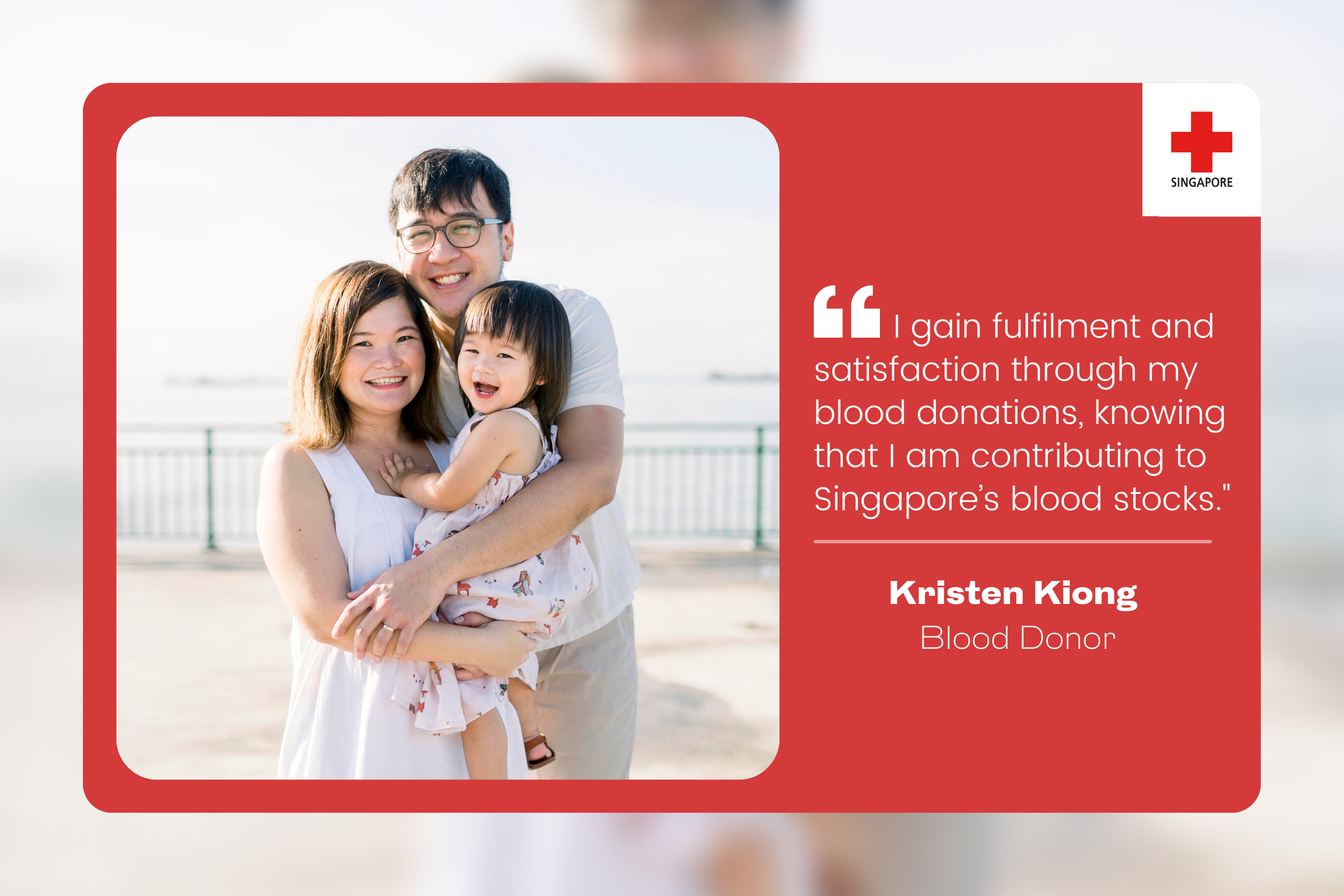
Piqued by a mobile blood drive held at the university during her undergraduate days, Kristen Kiong made her first blood donation when she was 20. Unfortunately, her subsequent blood donation attempts were curtailed by her low haemoglobin levels. Undaunted, she tried again when she was 28 and has been a regular blood donor since then.
A Mother. A Speech Therapist. An Artist. A dedicated blood donor. These are a few of many hats that Kristen Kiong wears!
33-year-old Kristen made her maiden blood donation at the age of 20, when her curiosity was piqued by a mobile blood drive at her university. Unfortunately, after her first donation, she did not meet the minimum haemoglobin levels required to donate blood (12.5 g/dL for women and 13 g/dL for men). That put the brakes on her blood donations. Undeterred, she made another blood donation attempt when she turned 28. This time around, she met the minimum haemoglobin levels required and has since become a regular donor.
Thanks to HSA’s proximity to her workplace, Kristen has incorporated blood donation as a regular part of her lifestyle. She rallies like-minded friends who meet during lunchtime to make blood donations. Bonding over a common motivation and purpose to save lives through blood donation, Kristen and her friends wholeheartedly believe that the impact of their blood donations is well worth giving up part of their lunch hour.
"I gain fulfilment and satisfaction through my blood donations, knowing that I am contributing to Singapore’s blood stocks," she says.
Having made at least three donations annually, Kristen received a HOPE token this year. The token was a three-piece travel bag. She shared that blood donation has become a habit that she looks forward to.
Being a thrill-seeker by nature, Kristen is unfazed by the needle.
“I would watch the nurse insert the needle into my arm!" she quips.
Overcoming Iron Deficiency
Beyond personal fulfilment, her blood donation journey has also enhanced her quality of life, in the most unexpected of ways. She learnt that the haemoglobin tests are safety measures to ascertain that the iron in the blood donors' body are at healthy levels before they donate blood. This ensures the well-being of the blood donors. Her inability to pass the haemoglobin tests has led to a deeper understanding of her body’s nutritional needs.
Having made a personal commitment to become a regular blood donor, Kristen took it upon herself to learn and discover why her iron levels remained low. Now, she maintains healthy iron levels with a diet of iron-rich food, such as seafood, fish, turkey, spinach, pumpkin seeds, broccoli, and quinoa; and takes iron supplements two days before her scheduled blood donation. Additionally, she ensures that her scheduled blood donation does not coincide with her menstruation period.
Besides its role in making red blood cells, iron is a key mineral that is also important for healthy muscles, bone marrow, and organ function. To maintain healthy iron levels, another change that Kristen embraced was kicking her caffeine habit.
Kristen recounts that the first day she “forgot” her coffee, she experienced headaches. She was taken aback, as she did not realise she had a caffeine addiction. While caffeine is an energy booster, it also adversely impacts iron absorption and may result in dehydration, anxiety and digestive issues. With these changes to her diet, Kristen feels energised, healthy and her motivation to continue as a blood donor has only grown stronger.
“If you’ve never donated blood before, I encourage you to go try. It's not that hard," Kristen muses. “Tell the friendly bloodbank employee that you’re new, and ask them to walk you through the process!” she encourages.
By Emma Yoon, Volunteer
Copyedited by Ruth Lee, Volunteer
|
Inspired? Join us as a volunteer. Keen to uplift the lives of the vulnerable in our midst? Support the Singapore Red Cross’ efforts by making a donation. |

